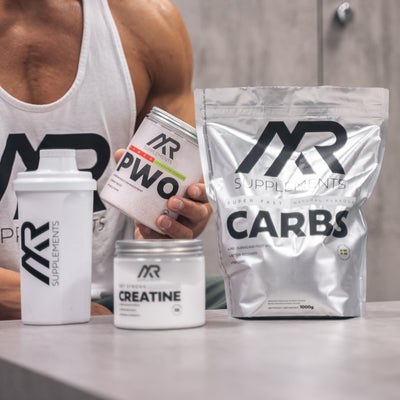Choosing healthy and nutritious foods is not just a trend, it's an investment in your health in both the short and long term. Here we'll explore why it's important to be aware of the calorie content of food and why nutritious foods are essential for maintaining optimal energy and well-being.
1. Calories and Energy:
Calories are the fuel that powers our bodies. However, it is important to understand the difference between fueling up on energy-dense foods and consuming high-calorie foods with low nutritional value. Nutrient-dense foods provide not only calories but also important vitamins, minerals and other essential nutrients that support various body functions.
2. Junk Food and Empty Calories:
Junk foods, bad fats, unnecessary sauces, and fried foods are often high in calories but low in nutrients. These "empty calories" provide energy, but they lack the building blocks the body needs to function optimally. Regular consumption of such foods can lead to nutritional deficiencies and long-term health problems.
3. Quality over Quantity:
Focusing on nutritious foods means prioritizing the quality of what you eat over the quantity of calories. Vegetables, fruits, whole grains, lean protein, and healthy fats provide not only necessary calories but also a wide range of nutrients that support the immune system, brain, muscles, and other organs.
4. Energy Supply and Sustainability:
When you eat nutritious foods, your body gets a steady, long-lasting supply of energy. Compared to fast carbohydrates and sugars that can give a short-term energy boost followed by a quick crash, balanced meals provide a sustained feeling of energy and help regulate blood sugar levels.
5. The Importance of Balance:
Eating healthy is not about avoiding certain foods altogether, but about creating a balanced diet. It is important to indulge in sweets and indulgent foods consciously and in moderation.
Choosing nutritious foods is an investment in your long-term health and well-being. By understanding calorie content and the relationship between calories and energy, you can make informed choices to support your body and achieve your health goals. Remember, small changes to your diet can make a big difference over time.
Understanding calories and how they affect our bodies is fundamental to maintaining a healthy lifestyle. This blog post will give you a comprehensive overview of what calories are, what they contain, and how you can calculate your daily energy burn.

What are Calories?
Calories are the unit of energy found in food. When we eat and drink, we take in calories into our bodies, and these are then used as fuel to carry out various physiological and metabolic processes.
What Contains Calories?
The food we eat is mainly made up of three macronutrients: protein, carbohydrates and fat. Each gram of these macronutrients provides a certain number of calories:
- Protein: 1 gram of protein provides about 4 calories.
- Carbohydrates: 1 gram of carbohydrates also provides about 4 calories.
- Fat: 1 gram of fat provides higher energy, about 9 calories.
How Many Calories Do You Need?
To determine your daily calorie burn, you need to consider your Basal Metabolic Rate (BMR) and your activity level. BMR represents the amount of energy your body needs to perform basic functions when you are at rest.
Calculate your BMR:
For women: BMR
For men: BMR
Calculate your Total Daily Energy Expenditure (TDEE):
Activity level factors:
- Low activity: TDEE = BMR 1.2 (Sedentary job, no regular exercise)
- Light activity: TDEE = BMR 1.375 (Light exercise/sports 1-3 days a week)
- Moderate activity: TDEE = BMR 1.55 (Moderate exercise/sports 3-5 days a week)
- High activity: TDEE = BMR 1.725 (Hard training/sports 6-7 days a week)
- Very high activity: TDEE = BMR 1.9 (Physically demanding job and exercise 2x per day)
Understanding calories and your daily energy expenditure is fundamental to managing your weight and health. By calculating your BMR and TDEE, you can create a balance between calorie intake and calorie expenditure to reach your health goals. Remember, this is a general guide, and it's always a good idea to consult with a professional if you have specific health goals or medical conditions.

The Role of Supplements
Welcome to [Your Company Name], your place to maximize your health through scientifically designed supplements. In this blog post, we will explore why supplements like amino acids, whey protein, vitamins, omega-3s, creatine, and pre-workout are essential components to optimizing your health and training.
1. Super EAA Amino Acids: The Body's Building Blocks
Amino acids are the building blocks of the body and are essential for protein production. They help promote muscle growth, recovery, and energy production. Amino acid supplements can be especially useful for those who engage in intense exercise or are striving to increase muscle mass.
2. High Quality Whey100 Protein: The Cornerstone of Muscle Building
Whey protein is known for its high bioavailability and rapid absorption. It is an excellent source of essential amino acids and can help promote muscle growth and recovery after exercise. For those seeking to increase their protein intake, whey protein can be a convenient and effective solution.
3. ALL Vitamins, ZMA, Vitamin D+K2: Critical For Body Functions
Vitamins are essential for a variety of bodily functions, including immune system strength, energy production, and nervous system health. Vitamin supplements, especially during periods of intense exercise or for those with specific dietary restrictions, can ensure the body gets the nutrients it needs.
4. Clean Omega-3: Brain Health and Anti-Inflammatory Benefits
Omega-3 fatty acids, especially EPA and DHA, are known for their anti-inflammatory properties and positive effects on brain health. Omega-3 supplements can support cognitive function, heart health, and reduce inflammation in the body.
5. Get Strong C reatin: Increased Strength and Performance
Creatine is a natural substance found in muscles and is used to produce energy during high-intensity activities. Supplementing with creatine can increase muscle volume, increase strength, and improve performance during exercise.
6. Power PWO Pre-workout: Energy and Focus
Pre-workout supplements are designed to provide energy, increase focus, and improve endurance during exercise. They may contain ingredients like caffeine, beta-alanine, and creatine to support optimal workout efficiency.
7. Super Fast Carbs 100% Maltodextrin: Fast Energy and Recovery
Super Fast Carbs from AR Supplements is pure Maltodextrin, fast-acting carbohydrates that provide instant energy for intense exercise. Perfect for increasing endurance and speeding up recovery, it is a tasteless and adaptable supplement for all high-intensity exercise.
Incorporating supplements into your daily routine can be key to achieving your health goals and optimizing your training. Be aware of your individual needs and goals, and consider consulting with a professional to tailor your supplement plan.
At AR Supplements, we are here to support your journey towards a healthy and balanced lifestyle. Experience the difference today!
Now let's go!




